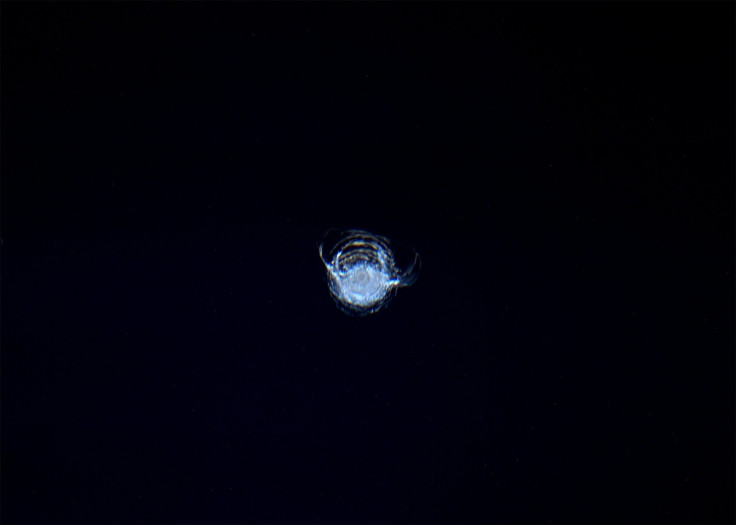Tim Peake reveals space debris cracked window of International Space Station
A window on board the International Space Station (ISS) has been cracked by a tiny piece of space debris. British astronaut Tim Peake shared a photo of the damage: a 7mm circular chip in the window of the space station's observation area.
Peake said: "I am often asked if the International Space Station is hit by space debris. Yes – this is the chip in one of our Cupola windows!" The window is quadruple-glazed, so the chip poses no danger to the astronauts.
The Cupola is a 3m-wide observation area for the astronauts, added to the ISS in 2010. It also provides visibility when the astronauts are operating the station's robotic arms.
Like all areas of the ISS, the Cupola can occasionally be hit by pieces of space debris − fragments of man-made objects floating around space at extremely high speeds.
The debris that hit the window is thought to have been very small − less than a thousandth of a millimetre in diameter and was "possibly a paint flake or small metal fragment", the ESA said in a statement.

The ISS is well-prepared for these types of minor impact with "extensive shielding around all vital crew and technical areas". This means debris, like the one that hit the window, pose no threat to the space station.
However, larger objects could cause serious damage. Space debris up to 1cm could disable instruments, while anything between 1cm and 10cm could breach the station crew module defences. Above 10cm, and the space debris could destroy a satellite or spacecraft altogether.
"ESA is at the forefront of developing and implementing debris-mitigation guidelines because the best way to avoid problems from orbital debris is not to cause them in the first place," said Holger Krag, head of ESA's Space Debris Office.
"These guidelines are applied to all new missions flown by ESA, and include dumping fuel tanks and discharging batteries at the end of a mission, to avoid explosions, and ensuring that satellites re-enter the atmosphere and safely burn up within 25 years of the end of their working lives."
© Copyright IBTimes 2025. All rights reserved.





















